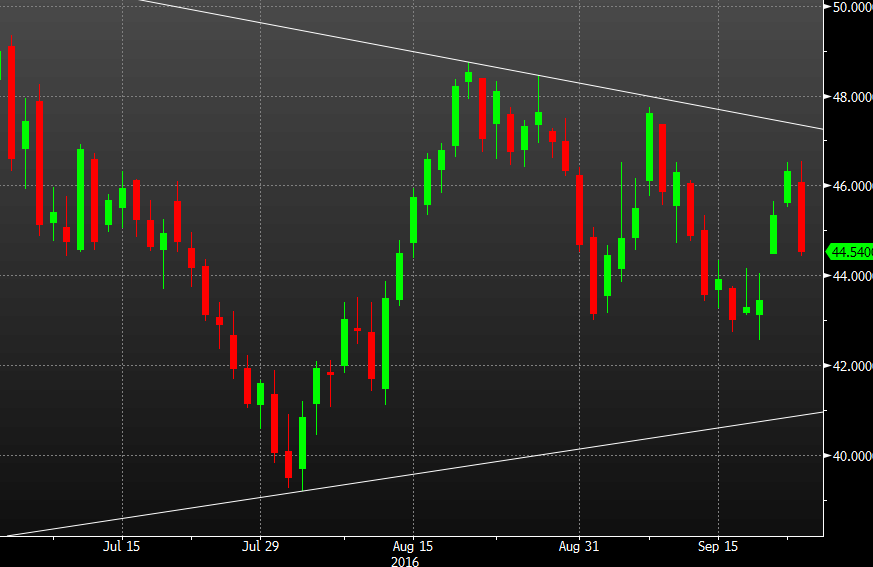-
Tips for becoming a good boxer - November 6, 2020
-
7 expert tips for making your hens night a memorable one - November 6, 2020
-
5 reasons to host your Christmas party on a cruise boat - November 6, 2020
-
What to do when you’re charged with a crime - November 6, 2020
-
Should you get one or multiple dogs? Here’s all you need to know - November 3, 2020
-
A Guide: How to Build Your Very Own Magic Mirror - February 14, 2019
-
Our Top Inspirational Baseball Stars - November 24, 2018
-
Five Tech Tools That Will Help You Turn Your Blog into a Business - November 24, 2018
-
How to Indulge on Vacation without Expanding Your Waist - November 9, 2018
-
5 Strategies for Businesses to Appeal to Today’s Increasingly Mobile-Crazed Customers - November 9, 2018
Oil traders listen to OPEC talk, wait for action
As OPEC prepares to meet in Algiers next week, the oil market is reminding the group’s members what’s at stake if they fail to reach a deal. After this announcement, oil prices rose initially but later fell by nearly 4%, with WTI and Brent trading at $44.48 and $45.89, respectively, at the time of writing this article.
Advertisement
The meeting will be held at the fringe of the International Energy Forum in Algiers from 26-28 September.
Members of the Organization of the Petroleum Exporting Countries (OPEC), Russia and other major producers will be meeting on the sidelines of the summit to discuss possible strategies for rebalancing the market. Venezuela’s evaluation is that global production is at 94 million barrels per day, of which market needs to go down 9 million barrels per day to sustain the level of consumption.
“Even if a production freeze agreement were signed, this would change very little from a fundamental perspective, given that most OPEC members are already pumping close to their peak capacity”, said BMI Research. Also, it is absolutely clear that if Saudi Arabia dominated-OPEC refuses to reduce or even limit its production levels, then even Russian Federation will continue to produce oil at record levels and this will put downward pressure on oil (NYSEARCA:USO).
Canada’s beleaguered oil industry would get a boost from any coordinated action on production that may, at some point, come from OPEC.
In short, OPEC members are certainly feeling the economic pressures from lower oil prices, but they aren’t too keen to abandon long-run market and political interests.
The Iranians have added to production and exports along with the Iraqis and “in Doha, all the talk was about freeze-now we are talking about a Saudi cut”, he said.
Now is the right time for a deal, according to Falah Al-Amri, Iraq’s governor to Opec.
A pact could give exemptions to countries like Nigeria and Libya to restore output, but without any agreement there would be no restraint on OPEC supply. The recent flurry of activity among members could be an effort to restore a trust that’s been mostly lacking since their last big deal fell apart almost a decade ago.
Advertisement
Iran and Saudi Arabia are yet to react to the Reuters report. The kingdom denied there was any current need to cap production and is reluctant to constrain output as the resulting boost for prices could revive supplies from US shale drillers. That would imply a production boost of between 150,000 and 400,000 barrels a day compared with August, when Iraqi production stood at 4.6 million barrels a day.





























